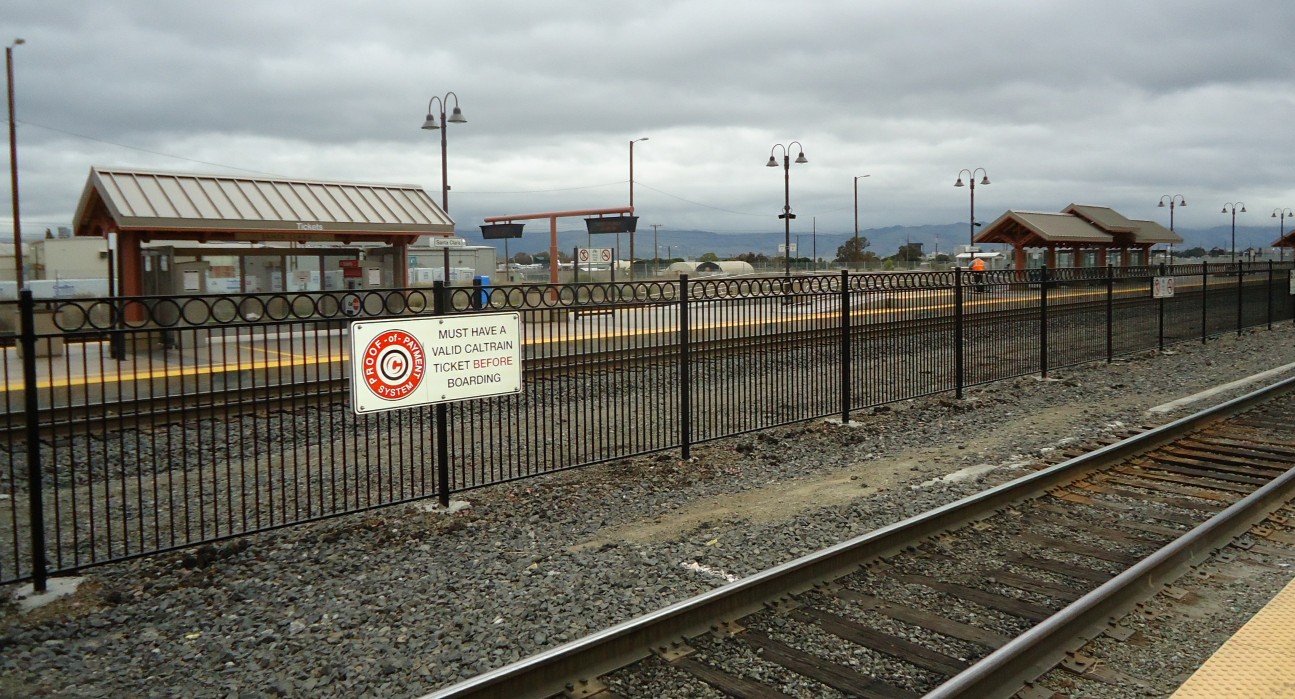Executive
Waste of the Day: Santa Clara Will Spend $213 Million on Rail Cars – They Won’t Use Until 2037!
Santa Clara County will buy 48 new rail cars – that they can’t use until 2037 because they don’t have a track to run on.

Topline: This May, the County of Santa Clara, California agreed to spend almost $213 million on 48 new rail cars. There’s just one problem: Santa Clara has yet to build its new railway.
Santa Clara buying mass-transit rail cars 13 years in advance?
Instead, the rail cars will service nearby counties until Santa Clara opens its Bay Area Rapid Transit System (BART) station in 2037, at which point the cars will be a quarter of the way through their lifetime.
This is the true definition of putting the cart before the horse.
Key facts: Santa Clara’s new rail station was supposed to be completed by 2026 at a cost of $4.4 billion, but delays have pushed the project back 11 years and added over $8 billion to the price tag.
But the county already had an agreement with BART in place to buy new rail cars in 2026 at a discounted rate. If they don’t buy them now, the discount will expire and the cars could cost more than $450 million, county official Tom Maguire told The Mercury News.
Santa Clara can’t just keep the cars in storage until 2037 either. Maguire says that would degrade them faster than if they’re being used.
The only option is to let BART use the rail cars in other California cities until the Santa Clara station opens. The county voted to do just that, shelling out $172.6 million for the cars and agreeing to pay $4 million per year for maintenance over the next decade.
Search all federal, state and local government salaries and vendor spending with the AI search bot, Benjamin, at OpenTheBooks.com.
But the grants keep coming
Critical quote: “If I have a child and they’ll turn 16 and start driving, I’m not going to buy a car for them when they’re born so that by the time they’re 16 that car will be worth a lot more,” County Supervisor Otto Lee told The Mercury News. Lee voted against the rail car purchase.
Background: Rather than cut costs, the federal government has decided to support to the final phase of the Silicon Valley BART Extension project with a $5 billion grant. County officials say it’s the second-largest federal investment in any transportation project in U.S. history.
Santa Clara is one of several counties around the U.S. wasting taxpayer money on delayed transportation extensions. U.S. Senator Joni Ernst calls these projects, “billion-dollar boondoggles.”
Construction on the Red Line light rail system in Baltimore has been paused and restarted by several governors since 2008. It will now cost up to $4.3 billion more than it would have without the delays.
The Southwest Light Rail Transit Project in Minnesota was supposed to open last year at a cost of $2 billion. New estimates say it will open in 2027 for $2.85 billion.
Summary: Taxpayers deserve transportation systems that are completed quickly and stay under budget. When projects get mired down by technicalities and rising costs, everyone loses.
The #WasteOfTheDay is brought to you by CEO & founder, Adam Andrzejewski, with Jeremy Portnoy. Learn more at OpenTheBooks.com.
This article was originally published by RealClearInvestigations and made available via RealClearWire.
Adam Andrzejewski (say: Angie-eff-ski) was the CEO/founder of OpenTheBooks.com. Before dedicating his life to public service, Adam co-founded HomePages Directories, a $20 million publishing company (1997-2007). His works have been featured on the BBC, Good Morning America, ABC World News Tonight, C-SPAN, The Wall Street Journal, The New York Times, USA Today, FOX News, CNN, National Public Radio (NPR), Forbes, Newsweek, and many other national media.
Today, OpenTheBooks.com is the largest private repository of U.S. public-sector spending. Mission: post "every dime, online, in real time." In 2022, OpenTheBooks.com captured nearly all public expenditures in the country, including nearly all disclosed federal government spending; 50 of 50 state checkbooks; and 25 million public employee salary and pension records from 50,000 public bodies across America.
The group's aggressive transparency and forensic auditing of government spending has led to the assembly of grand juries, indictments, and successful prosecutions; congressional briefings, hearings, and subpoenas; Government Accountability Office (GAO) audits; Congressional Research Service (CRS) reports; federal legislation; and much more.
Our Honorary Chairman - In Memoriam is U.S. Senator Tom Coburn, MD.
Andrzejewski's federal oversight work was included in the President's Budget To Congress FY2021. The budget cited his organization by name, bullet-pointed their findings, and footnoted/hyperlinked to their report.
Posted on YouTube, Andrzejewski's presentation, The Depth of the Swamp, at the Hillsdale College National Leadership Seminar 2020 in Naples, Florida received 3.8 million views.
Andrzejewski has spoken at the Columbia School of Journalism, Harvard Law School and the law schools at Georgetown and George Washington regarding big data journalism. As a senior policy contributor at Forbes, Adam had nearly 20 million pageviews on 206 published investigations. In 2022, investigative fact-finding on Dr. Fauci's finances led to his cancellation at Forbes.
In 2022, Andrzejewski did 473 live television and radio interviews across broadcast, major cable platforms, and radio shows. Andrzejewski is the author of The Waste of the Day column at Real Clear Policy. The column is syndicated by Sinclair Broadcast Group, owners of nearly 200 ABC, NBC, CBS, and FOX affiliates across USA.
Andrzejewski passed away in his sleep at his home in in Hinsdale, Illinois, on August 18, 2024. He is survived by his wife Kerry and three daughters. He also served as a lector at St. Isaac Jogues Catholic Church and finished the Chicago Marathon eight times (PR 3:58.49 in 2022).
Waste of the Day articles published after August 18, 2024 are considered posthumous publications.
-

 Accountability3 days ago
Accountability3 days agoWaste of the Day: Principal Bought Lobster with School Funds
-

 Constitution2 days ago
Constitution2 days agoTrump, Canada, and the Constitutional Problem Beneath the Bridge
-

 Executive1 day ago
Executive1 day agoHow Relaxed COVID-Era Rules Fueled Minnesota’s Biggest Scam
-

 Civilization4 hours ago
Civilization4 hours agoWhy Europe Shouldn’t Be Upset at Trump’s Venezuelan Actions
-

 Civilization1 day ago
Civilization1 day agoThe End of Purple States and Competitive Districts
-

 Christianity Today4 hours ago
Christianity Today4 hours agoSurprising Revival: Gen Z Men & Highly Educated Lead Return to Religion
-

 Civilization5 days ago
Civilization5 days agoThe devil is in the details
-

 Executive4 days ago
Executive4 days agoTwo New Books Bash Covid Failures










